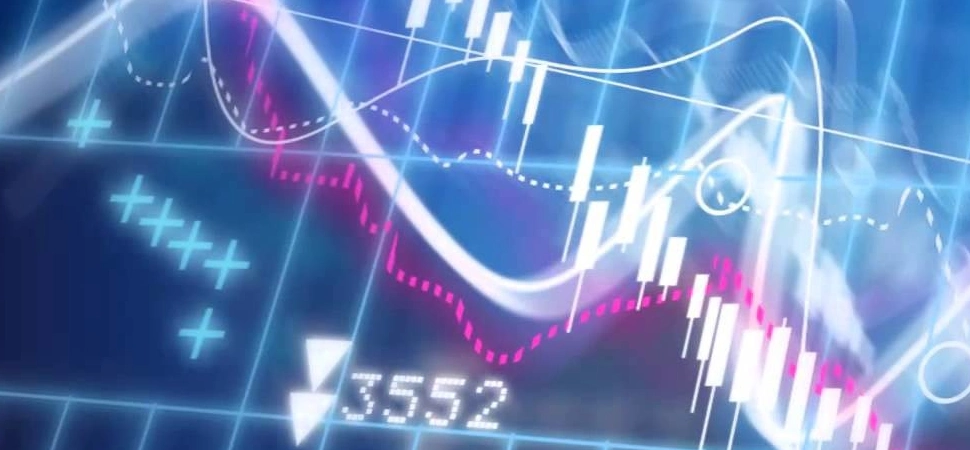15.04.2024
Евгений Лебедев
403

Let's start with the obvious: to make money on Forex, you need to not lose money! To put it simply, if you want to make money on a regular basis, you need to avoid repeating the mistakes of 75% of traders. The mistakes of beginners and even experienced traders are not difficult to track and are well known to Forex brokers, as all the more sophisticated platforms are also designed to obtain statistics on the trading "behavior" of clients.
Professional approach
Supplement or not, if you want to make a regular income from Forex trading, you need to approach it as professionally as possible. As with any other business, it's important to remember that short-term gains and losses are not the most important thing. They are important in the medium to long term. Like any business, making money in Forex involves Forex broker and analyst fees, losses, transaction taxes, risks and uncertainty. Moreover, just as small businesses rarely succeed overnight, so do most Forex traders. Planning ahead, setting realistic goals, being organized and learning from successes and failures will help you achieve your financial goals through trading.
The role of knowledge in trading
Just because the Forex market is the most accessible of the financial/stock markets doesn't mean you should start speculating right after learning a few basics. Quality training is the No.1 ingredient in investor success.
To put it in clearer terms: while most of the trading knowledge comes from actual trading and accumulated experience, a trader needs to comprehend other aspects, starting with geopolitical and economic factors affecting the dynamics of major currencies such as the dollar, euro and yen. Therefore, learning to trade Forex is a constant work in progress. You must be prepared to adapt to changing market conditions, rules and events that cause volatility. Not all currencies are equally profitable. Volatility is the deciding factor when choosing a currency to make money in Forex. But it is not necessarily the most important characteristic - it all depends on your profile as a Forex trader. Reliable broker
Experience has taught us that regulated and licensed brokers are not necessarily reliable brokers. But we have compiled a list of those brokers whose reputation we are confident in.
Regulatory bodies and examples of regulated Forex brokers
- France AMF (Autorité des Marchés Financiers) Saxo Banque, Bourse Direct;
- Germany BaFin (Bundesanstalt für Finanzdienstleistungsaufsicht) JFD;
- UK FCA (Financial Conduct Authority) IG Markets, FXCM;
- Australia ASIC (Austalian Securities and Investments Commission) XM, Pepperstone;
- Switzerland FINMA (Finanzmarktaufsicht) Dukascopy, BDSwiss;
- Cyprus CySEC (Cyprus Securities and Exchange Commission) eToro, AvaTrade;
- Malta MFSA (Malta Financial Services Authority) NSFX, Deriv.
Following the AMF's intervention, a lot of work has been done. However, choosing a Forex broker remains crucial as spreads (trading fees) can drastically change your profit on each trade. Take care to get as many opinions as possible about the range of instruments traded, leverage, commissions and spreads, initial deposits and withdrawal policies. Certified customer review platforms (TrustPilot), specialized forums and groups of experienced traders in social networks will also help you make the right choice.
Using a demo account
Almost all trading platforms can be tested from start to finish on a demo account. This allows you to trade in a risk-free environment that is very similar to real-world conditions. Perhaps another important advantage of a demo account is that it allows you to test strategies. This will help you avoid losing money on your first few Forex trades. Many expert traders do not hesitate to "run" trading robots on a demo account and copy the positions made by the robot on their real account. These trading robots are known as Expert Advisors: there are over 2 million of them for the popular MetaTrader software, which perform technical analysis for you and place automatic orders.
Stop losses will protect your capital
While Forex trading is all about making profits, it is equally important to learn how to limit your losses. Many experienced traders agree that you can enter a position at any price and still make money - it's how you exit the trade that matters!
Leverage
Forex trading is unique in that CFD and Forex brokers provide leverage to their clients. One of the reasons for using leverage is, of course, the ability to make significant profits on a (very) small investment. Leverage allows you to tie up only a small portion of the capital required to make a trade: this is called margin. The higher the leverage, the lower the margin requirements.
Margin requirements depending on leverage are as follows
- 10% - 1:10;
- 5% - 1:20;
- 3% - 1:33;
- 2% - 1:50;
- 0,5% - 1:200.
If handled carefully, leverage offers extremely interesting upside potential. But the opposite is also true: leverage can just as easily amplify your losses. How to optimize its use? Very simply, by varying the size of each position within the available account balance. A standing recommendation is to put no more than 0.5-2% of your capital on each trade. Capital management is also very important! Do not put all of your capital into a trade. If the amount of capital you are risking on trades is too high, reduce the size of your average positions to observe proper money management.

Track your progress with a trading diary
A trading diary is an effective way to learn about the profits and losses in Forex. Keeping a trading diary involves keeping track of dates, currency pairs, profits, losses and, perhaps most importantly, the comments and feelings of the trader himself. You need to constantly check that you are sticking to your original strategy.
With a little analysis at the end of the month, a trading diary provides important retrospective information that allows you to make adjustments but still remain rigorous (and therefore regular!). "Insanity is doing the same thing over and over again and expecting different results": this phrase by A. Einstein makes perfect sense in trading! Without a trading diary and proper record keeping, you are likely to repeat the same mistakes, which will reduce your chances of becoming a profitable Forex trader.
What you should keep in your diary
- Trading strategy;
- Entry Signals;
- Pairs traded;
- Profit/loss;
- Variation;
- Stop Loss and Take Profit levels in pips.
Many of the keys to success for Forex traders are similar to the keys to success for traders in other asset classes. The easiest way to make money in Forex is to build relationships with other successful Forex traders: only they can teach you proper discipline, risk management rules and emotion management. Understanding macroeconomic and technical fundamentals is essential for Forex trading. But even more important is psychology! Don't let your emotions influence your decisions about the size of a trade and the use of Forex signals.
Key findings
1. A professional approach to Forex trading involves focusing on long-term goals and accepting the inevitable risks and uncertainties. Success in trading requires careful planning, realistic goal setting, and continually learning from both successes and failures.
2. Demo accounts provide a risk-free environment for traders to practice trading strategies and familiarize themselves with trading platforms. Testing strategies on a demo account can help prevent costly mistakes and build confidence before moving on to real trading.
3. Effective risk management is key to capital preservation in Forex trading. Setting stop losses helps limit potential losses and protects traders from significant drawdowns. Strategically exiting trades is just as important as entering them.
4. Leverage increases both profits and losses in Forex trading, making it a double-edged sword. Although it offers the opportunity to make significant profits with minimal investment, traders must exercise caution and adhere to proper money management principles to reduce risks.
5. Keeping a trading diary allows traders to track their performance, analyze past trades and identify areas for improvement. Recording trading strategies, entry signals, and emotions associated with each trade promotes discipline and helps traders make informed decisions.
6. A comprehensive trading diary should include details such as trading strategy, entry signals, pairs traded, profit/loss, variations and stop loss/stake profit levels. Regular review of the trading diary allows traders to improve their approach and avoid repeating past mistakes.
